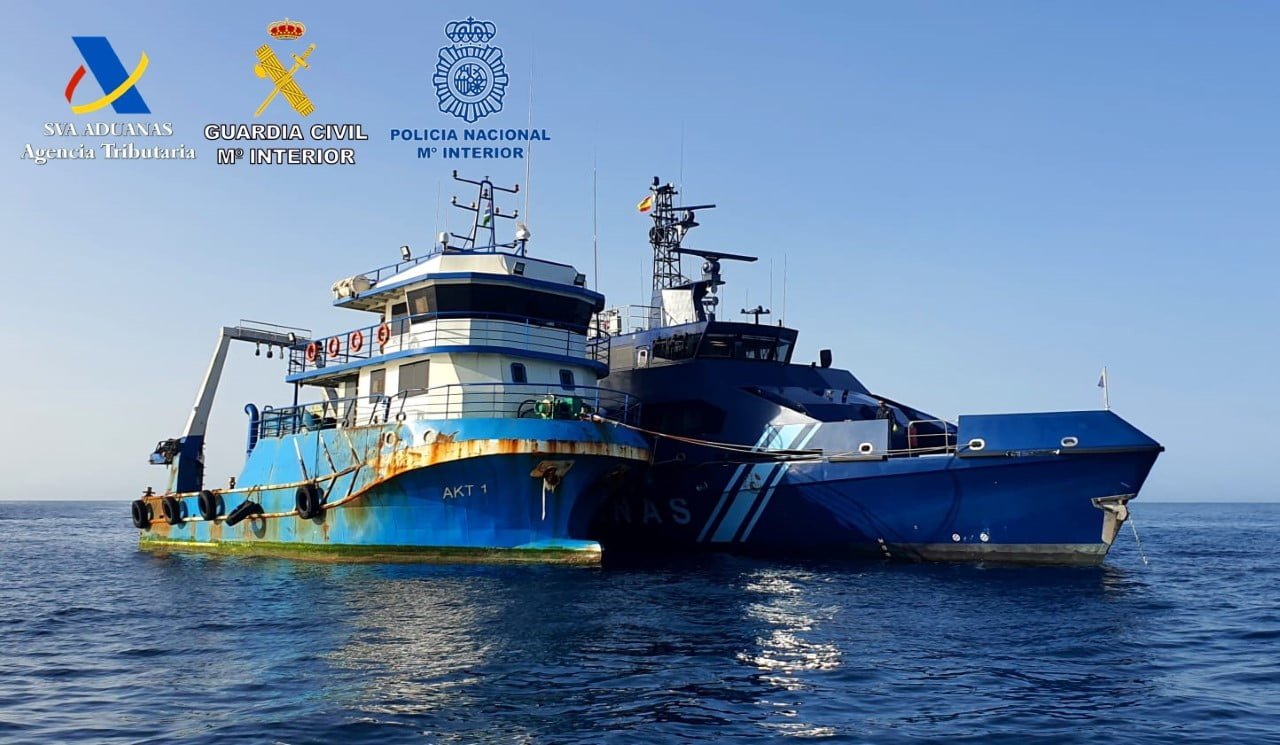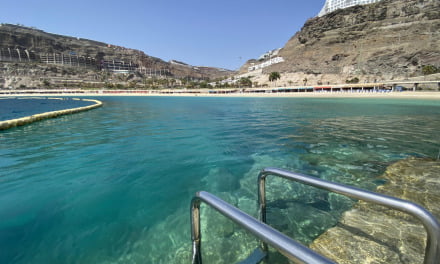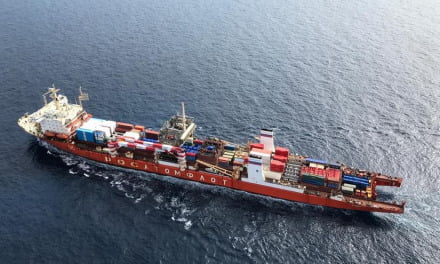 Officials from the Spanish Tax Agency’s Customs Surveillance Service, working as part of a joint operation with agents from the Policia Nacional and Guardia Civil, in waters south of the Canary Islands, last week, intercepted a fishing boat loaded with more than 2,900 kilos of cocaine hidden in one of its fuel tanks, arresting all five crew members. Operation ‘Capirote-Piteas-Acerico‘, led to the boarding of the 20-meter-long fishing vessel, named ‘AKT 1’, on the afternoon of April 13, some 300 nautical miles south of the Canary Islands archipelago, transferring to to the Port of Las Palmas on 16th of April. The operation was directed and coordinated by the National High Court Anti-Drugs Prosecutions Office.
Officials from the Spanish Tax Agency’s Customs Surveillance Service, working as part of a joint operation with agents from the Policia Nacional and Guardia Civil, in waters south of the Canary Islands, last week, intercepted a fishing boat loaded with more than 2,900 kilos of cocaine hidden in one of its fuel tanks, arresting all five crew members. Operation ‘Capirote-Piteas-Acerico‘, led to the boarding of the 20-meter-long fishing vessel, named ‘AKT 1’, on the afternoon of April 13, some 300 nautical miles south of the Canary Islands archipelago, transferring to to the Port of Las Palmas on 16th of April. The operation was directed and coordinated by the National High Court Anti-Drugs Prosecutions Office.
The result of international collaboration, including exchange of information between the MAOC-N (Center for Analysis and Atlantic operations) and CITCO (Intelligence Center Against Terrorism and Organised Crime) led investigators from the Customs Surveillance Service, the National Police and the Civil Guard to determine the possible involvement of a vessel suspected of illicit drug trafficking from South America.
Spanish Customs seize "African Route" drugs transport
Spanish customs officers (aduanas) seize 3 tons of suspected drugs from vessel pretending to be fishing the "African Route", and taken, via Arguineguín, to Puerto de las Palmas de Gran Canaria
Read More: https://thecanarynews.com/2022/04/a-fishing-boat-loaded-with-three-tons-of-cocaine-intercepted-south-of-the-canary-islands/
Posted by The Canary News on Tuesday, April 19, 2022
 Hidden along the route of the Sub-Saharan fishing grounds
Hidden along the route of the Sub-Saharan fishing grounds
An air and seaborne operation, established by the Tax Agency’s Deputy Directorate of Customs Surveillance resulted in the locating and boarding of the fishing boat by the ‘Cóndor’ patrol boat, which was heading north, camouflaged among the usual fishing boats that navigate close to the sub-Saharan fishing grounds. At the time of boarding the fishing boat was discovered to be transporting a significant number of bundles of the type usually used for cocaine trafficking, so the five crew members, four of Turkish nationality and one Georgian citizen, were immediately arrested.
Complex boarding and navigation conditions
The navigation and boarding conditions were very complicated, due to bad sea conditions, with sustained strong northerly winds topping 40 knots and gusts of up to 60. Despite these difficulties, the fast performance of the ‘Cóndor ‘ and its crew prevented any possible transshipment of the narcotics to other vessels, which would have compromised the detection of the illicit cargo.
During the subsequent transfer to port it was necessary to alert the Salvamento Maritimo (Maritime Rescue) due to concerns of a machine failure on the fishing boat, which was described as ‘substandard’ (meaning that it does not meet basic international safety and navigation standards) due to the engine being in very poor condition, to the point that it was feared a fire could break out on board, leading to the necessity for a technical stop at the southern most port of Arguineguín (Gran Canaria) to check the status of the vessel before finally heading up to Las Palmas, on the north of the island.
The detainees, the boat, the drugs and the police proceedings will all be placed at the disposal of the Central Court of Investigation, acting under the auspices of the National High Court, the first proceedings to have been carried out in this manner by the Courts of Instruction in Las Palmas de Gran Canaria.
This operation results from efforts by the Spanish Customs Agency (Aduanas) and State Security Forces working with various official bodies in the prevention of drug trafficking along what is known as the ‘African Route’, known for being used by fishing vessels that receive narcotic substances in the middle of the Atlantic for their subsequent introduction onto the European continent, using the African coastal route to go unnoticed among the incessant fishing traffic throughout the area













